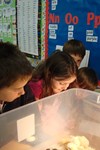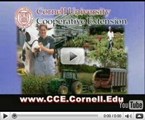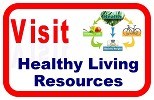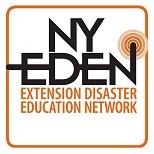Posted 3/1/2010
by Marilyn J. Smith

According to a press release from the Montgomery County Business Development Center, the Montgomery County Census Complete County Committee is peased to announce the 2010 Census Pep Rally to be held at Fulton-Montgomery Community College on Friday, March 5th, 2:30-3:30 p.m.
With 2010 Census questionnaires expected to begin arriving in the mail during mid-March, this event is to highlight the importance of a complete count. Special guest speakers will include Congressman Paul Tonko, Assemblyman George Amedore, Monica M. Arias, Co-Chair, Capital Region Hispanic Complete County Committee and Janice Young, U.S. Census Bureau Partnership Specialist.
Posted 2/26/2010
by Linda Wegner

Sliding down a snow-covered hill is a lot of fun for children and adults alike. This can be an excellent outdoor activity for the whole family. But, without proper safety practices, injuries can happen. Paramedics attend too many tobogganing injuries; and many of those injuries have been as serious as severe head injuries and broken backs. Tobogganing is fun, but teach your children to do it safely.
Posted 2/26/2010
by Shannon Dygert

It’s time to get involved in the 4-H Incubation and Embryology project, an enjoyable, hands-on learning experience!
Chicken eggs take three weeks to hatch into chicks during which time your students will learn how chicks develop, the science of embryology and much more. You can create excitement about learning life science with this amazing process unfolding in your classroom.
Posted 2/24/2010
by Roseann Doran

Shared meals nourish mind, body and soul.
Families who have made the effort to schedule meals when most or all members can be present have experienced the following benefits:
Better communication- Mealtime conversations let family members share the daily happenings in their lives and get to know more about each other. Mealtime also can be an opportunity to plan family activities and discuss family needs.
Stronger family bond -Every family has strengths. Eating together increases each family member’s sense of belonging and provides a setting for discussions that can reinforce values that are important to the family. Regular family meals create a routine that helps children feel more secure. Stronger bonds make it easier to deal with problems that arise.
Shared learning- Eating together offers an opportunity to practice social skills, including table manners and conversation, as well as basic food preparation skills.
Improved nutrition- A more balanced nutritious meal is likely to be prepared when most or all of the family eats together. Shared meals also can save money.
Posted 2/22/2010
by Bill Steele, Cornell Chronicle

As Yogi Berra said, prediction is hard -- especially about the future. The computer models scientists use to predict climate change are always works in progress. In a sort of cosmic reality competition, 20 groups around the world are developing new models they submitted for review under the auspices of the Intergovernmental Panel on Climate Change (IPCC), the international body whose recommendations were being considered at the U.N. Climate Change Conference in Copenhagen, which ended Dec. 17, 2009. Three modeling groups are based in the United States, and Cornell researchers are involved in one of them.
Posted 2/22/2010
by Lauren Gold, Cornell Chronicle

Ask a college student if she's getting enough sleep, and the answer is likely to be "no." Even students who know they're sleep deprived don't realize just how severe their sleep deficit is -- or how it affects their lives.
But new research by psychology professor James Maas shows that educating students about the importance of sleep -- while also giving them objective feedback on their own sleep patterns -- can persuade them to significantly improve their habits. More sleep can lead to higher grades, better athletic performance and improved emotional and physical health.
Posted 2/17/2010
by Becky Unkenholz and Billy Cox

WASHINGTON, Feb. 4, 2010 - Agriculture Secretary Tom Vilsack today announced several new initiatives to assure the safety and quality of food purchased by USDA for the National School Lunch Program and other food and nutrition assistance programs.
"Nothing is more important than the health and well-being of our Nation's school children," said Vilsack. "We must do everything we can to ensure that our kids are being served safe, high quality foods at school. Today's announcement demonstrates our commitment to constantly improving the safety and quality of foods purchased by USDA."
The initiatives announced today are a combined effort of five USDA agencies - the Agricultural Marketing Service (AMS), the Agricultural Research Service (ARS), the Food Safety and Inspection Service (FSIS), the Farm Service Agency (FSA) and the Food and Nutrition Service (FNS).
Posted 2/16/2010
by Cornell Chronicle
A deadly fish virus that was first discovered in the Northeast in 2005 has been found for the first time in fish from Lake Superior, report Cornell researchers. That means that the virus has now been documented in all of the Great Lakes.
The viral hemorrhagic septicemia virus (VHSV), which causes fatal anemia and hemorrhaging in many fish species, poses no threat to humans, said Paul Bowser, professor of aquatic animal medicine at Cornell's College of Veterinary Medicine.
Posted 2/5/2010
by Danya Glabau
Across Pennsylvania and New York state, new technologies and higher gas prices are increasing the cost-efficiency of tapping into the Marcellus Shale, a deep rock formation from earlier in the Devonian period than the rocks on the Cornell University campus, to extract natural gas contained in the rock. Cornell Cooperative Extension (CCE) has found itself on the front lines of educating citizens and communities about this issue.
Posted 12/29/2009

This book is more than a cookbook - it's also a directory of 15 local farms where you can purchase products directly from the producer. Beautiful photography by Tom Scofield showcases each farm, followed by contact information and a description of the farm. Recipes were provided by the individual farms. Cooperative Extension added a section in the back with general cooking information.
Quantities are limited. $7 each and are available from the CCEFM office in Johnstown, at the Mohawk Harvest Cooperative Market in Gloversville and at farms featured in the book.












